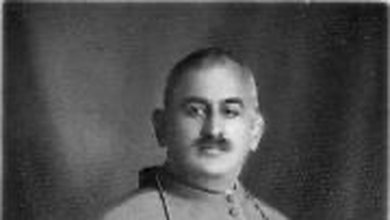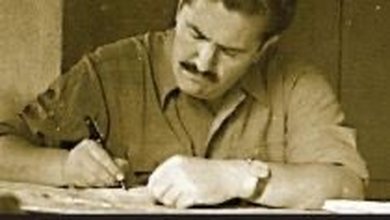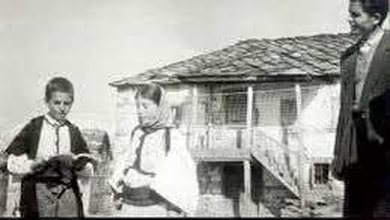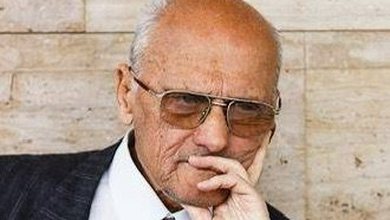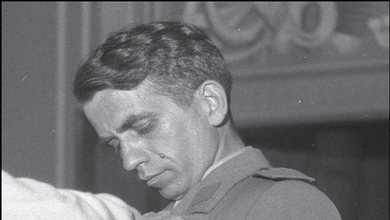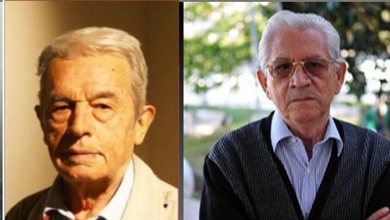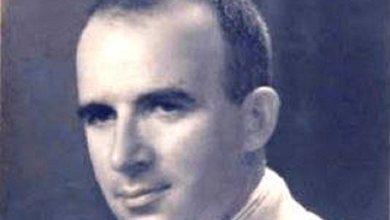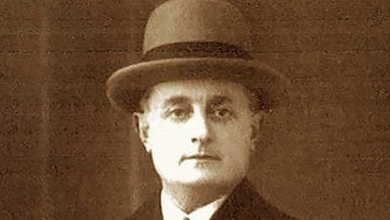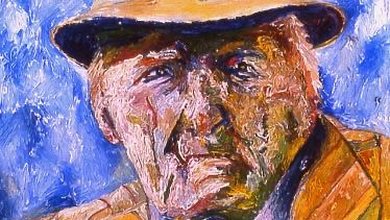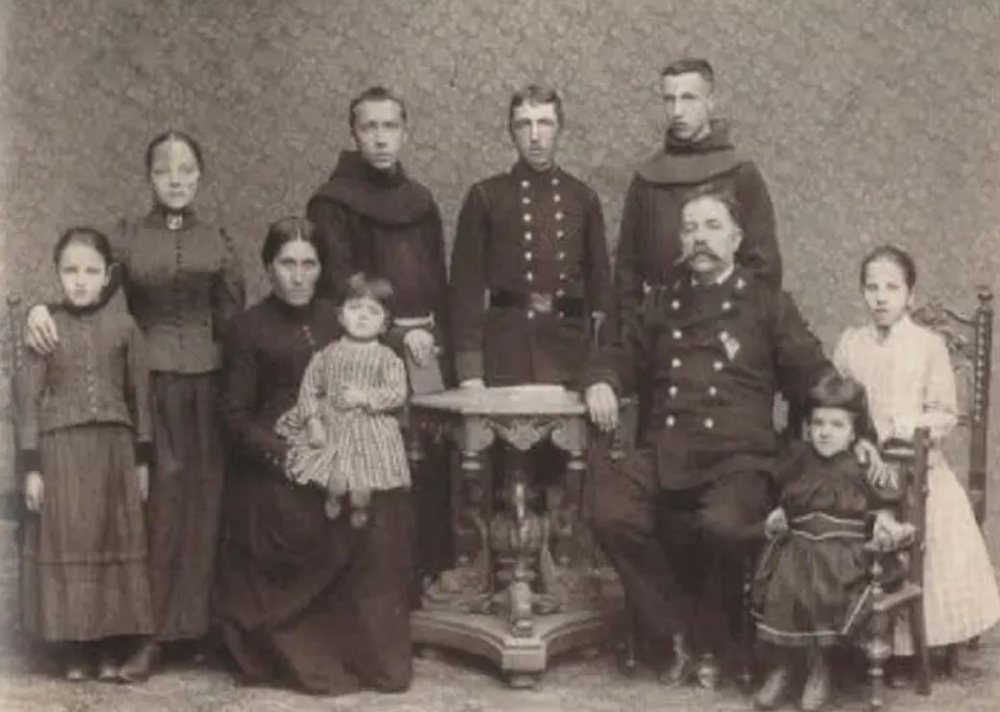
“My Albanian Diary” by the Austrian parish priest, Fabian Barcata, is published for the first time in Albanian by the “Mirdita” Publishing House, on its centenary. It was written in 1905-1906, in Kryezez (Rubik) and was published twenty years later in the Franciscan magazine “Franzisziglöcklein”, Austria, in 1926-1927. This is the first genuine diary of a foreign priest for Albania. The name of Fabian Barcata, this Austrian mystic of the early last century, is almost unknown to today’s reader. This was the case seventy years ago, until his book “Flowers” was translated and published in Albanian, thanks to the care of Professor Karl Gurakuqi, one of the prominent names in Albanian literature and culture, who died in Rome as a political emigrant in 1971.
A figure like Barcata brings honor to Austria itself
“MY ALBANIAN DIARY”
(Excerpt from the diary…)
By Father Fabian Barcata
MELANCHOLY
"The hours when I miss my hometown"
September 20, 1905
The heart is a special thing. What it has and what it possesses is of no value to it. Its aim is to reach what is far and unfathomable. Am I not happy, do I not have a sphere of action that every priest would envy? Do not people love me with that childish love of theirs?
Oh, I'm not very grateful that I don't always have such things before my eyes. Even though I'm ashamed afterwards, I can't shake off the hours when a great pain stirs my soul, when my heart flees with that painful longing, the hours when I miss my homeland. That doesn't bring anything.
That's how we are from Tyrol, and even God up there, who puts a longing for the mountains of our homeland in our hearts, wouldn't take it against me. When my thoughts go back to my homeland, when the sights of my homeland, my parents, brothers and sisters, friends, relatives, and compatriots appear before my eyes, being here seems so boring to me, and my present life seems like a desert, and above this desert lies somewhere far away, like a mirage full of light and wonder, the past.
At such moments, reasoning is of no use at all, you cannot control yourself, I often go far away, up there to the top of Qafë e Fikut, where my gaze crosses over Molung, to the lake and from there, further north, where Tyrol, my birthplace, lies in the misty distance. And when I have had enough of looking and when this storm takes a seat somewhere in my heart, I slowly return to my apartment and lovingly carry out my work.
Fortunately, these turbulent hours are not that frequent. In Lezha it was even worse. There I fought my melancholy with other means. I let the horse be saddled and again I quickly set off, overcoming stumps and stones, pits and hills, always faster and faster. The wilder the journey, the faster I found myself. – Tu autem, Domine, miserere mei…!
feud
"What's the point of hating, Mark Paul?"
November 7, 1905
Today I allowed Mark Palin to come to me. He has long been at loggerheads with the Kovaçi family. Someone from the Kovaçi family had killed his son. This had happened seven years ago. I wanted to intervene and for this I begged him with convincing words, to forgive and forget. “Why is hatred worth it?
"With this you bring yourself unhappiness, while destroying the murderer's family. Seven years have passed since the child's death, and until now you have not been able to take revenge, because the Kovaçi family and clan have fled and are behaving like homeless people in this big world"!
The man looked at the fire (we were in the kitchen) and didn't even want to know about the reconciliation. When he got up to leave, I walked a little way with him. We had to pass by the cemetery. Suddenly he stopped there, pointed to one grave, then another, and said to me: here the mother of my child has pulled out her hair, here the mother of the murderer must also pull out her hair.
superstition
A victim of superstition
February 10, 1906
Today I returned from Kallmeti. I stayed all week to paint the monastery chapel. When I returned home, I was given sad news. Three days ago a poor gabel had been here. He was old, helpless and almost naked. He had been begging everywhere and then he had come to the parish. Mark had given him a piece of bread and a bowl of beans, which he ate like crazy.
Then he left and this morning they found him in Vela, like a dead dog. A victim of superstition. The people who had sentenced him to death may have thought that maybe he was some evil spirit or a devil! I'm glad it didn't happen in Kryezez, because for that God, it wouldn't be funny.
Oddity
Pagan superstitions: fear of spirits and old child burial rites!
April 21, 1906
How victorious my work has been, I now understand. Everywhere in this country the treacherous disease threatens. In Manati alone twenty people have died, and even the priest is affected and there is no hope. Here in Kryezez, a single child died, and in the very house where this disease first appeared.
Unsightly and almost entirely pagan, is the necessity that prevails in this place for the burial of small children. Yesterday afternoon, after I returned from Kallmeti, I heard for a long time, before I reached the cemetery, a tone of sad and rather long lamentation. It was only one voice, lamenting. When I got there, I saw a man who had set to work digging a small grave.
On the ground, near him, was a small cradle, and in it a dead child. Bent over the cradle, kneeling, stood a young woman, who expressed her pain in touching words, which were sometimes in a low voice and sometimes very strong. It had been the first and only child. I was a little angry, as I had often told people to call me, both for the burial of children and for adults.
I could never understand why they buried children secretly. Is it superstition or shame, pain or fear of annoying the priest too much. Or is it all of these? Yesterday I came at the right time. I dared to speak to the woman in a harsh tone, but when I saw that deep and great pain on her face and all over her body, I was silent. I got off my horse, tied the reins to a grave cross, entered the church and quickly returned in my singing attire and a cape.
I blessed the grave and the little corpse. The mother was silent and with big eyes she looked now at the dead child, now at the grave and now at me. Big tears were heavy on her eyelashes. The child was put in the grave, the boards of the broken cradle were placed on top of the little body and then the grave was closed. I went to the parish and after an hour I heard the frightened wailing of the young woman. Meanwhile I heard someone talking in the kitchen, a servant opened the door and said to me: “A woman wants to talk to you.”
I went out and found myself in front of the mother of the dead child. She came to me, took my right hand, brought it to her lips and said: "Sir, may God bless you, prolong your days and increase your strength. I, as an ignorant woman, can do nothing but thank you for having done my Zefi so many honors on his death."
I asked my servant George why they broke the cradle when they wanted to bury the child. He told me that it was a custom of the people, because they thought that the child who would sleep in the cradle of a dead child would die immediately after him. For this reason, a new cradle had to be made.
There is something else that worries me. The shallow depth of the grave. Sometimes it is thirty to forty centimeters deep. It has often happened that dogs and pigs have dug such graves and have had fun, mercilessly eating the flesh of the corpses.
Some time ago, a servant of mine told me a terrible story that had happened to my ancestor Dom Prendi. They had buried a child and that very night a loud cry of a child was heard in the rain. It was the child they had thought was dead. The servants and the priest had heard the child's cry.
However, no one dared to go more than seventy steps to the cemetery, because they thought it was a ghost and were very afraid. The next day, the grave was completely ruined. During the struggle for death, the poor little boy had stretched one hand out of the ground, from which the small, cold fist was visible. A poor victim of the fear of ghosts. And this is impossible to cure.
I see this in my servants too. For example, in the dark, none of them would go to the cemetery, even if they were given all the gold in the world. The way to the parish is through graves, and sometimes it happens that because of some work, they have to return, or leave home late.
For this reason, they have always gone around them, just to avoid going through cemeteries. When I gave them an example, they would answer me as usual: "Yes, it's easy for you, because you are a priest and spirits don't come out of a priest and no one hurts him." They know how to tell the most frightening stories.
About vampires, who came out of the graves at night, to drink the blood of people's hearts. One even tells how his donkey stood in the forest, hidden behind a stone, trembling with fear and it was impossible to make him walk. Sometime later, he learned that a man was buried there.
He was convinced that it had been a spirit that had scared the donkey. There were evenings when they would bet on who could tell the scariest story. And the next day, they would tell me that they had not been able to sleep all night. / Memorie.al


